Related Research Articles
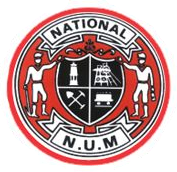
The National Union of Mineworkers (NUM) is a trade union for coal miners in Great Britain, formed in 1945 from the Miners' Federation of Great Britain (MFGB). The NUM took part in three national miners' strikes, in 1972, 1974 and 1984–85. After the 1984–85 strike, and the subsequent closure of most of Britain's coal mines, it became a much smaller union. It had around 170,000 members when Arthur Scargill became leader in 1981, a figure which had fallen in 2015 to an active membership of around 100.
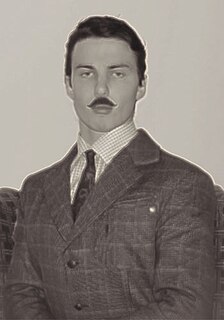
Arthur James Cook, was a British trade union leader who was General Secretary of the Miners' Federation of Great Britain from 1924 until 1931, a period that included the 1926 General Strike.
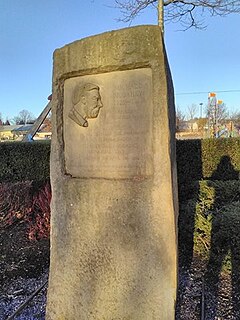
Michael McGahey was a Scottish miners' leader and lifelong Communist, with a distinctive gravelly voice. He described himself as "a product of my class and my movement".
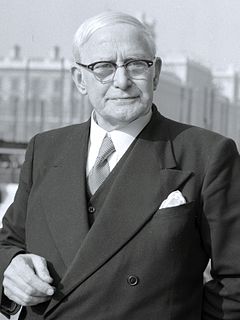
Stephen Owen Davies was a Welsh miner, trade union official and Labour Party politician, the Member of Parliament (MP) for Merthyr Tydfil, previously Merthyr for nearly 38 years, from 1934 to 1972. In 1970, well past 80, he was deselected as parliamentary candidate by his local party association because of his age. He fought the election in the 1970 general election as an independent candidate and won comfortably, a rare example in British politics of an independent candidate defeating a major party's organisation. In a BBC TV interview the day after that election, he claimed to be 83 years old.
The Miners' Federation of Great Britain (MFGB) was established after a meeting of local mining trade unions in Newport, Wales in 1888. The federation was formed to represent and co-ordinate the affairs of local and regional miners' unions in England, Scotland and Wales whose associations remained largely autonomous. At its peak, the federation represented nearly one million workers. It was reorganised into the National Union of Mineworkers in 1945.
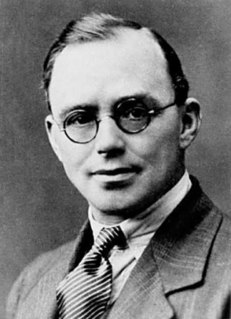
Arthur Lewis Horner was a Welsh trade union leader and communist politician. During his periods of office as President of the South Wales Miners Federation (SWMF) from 1936, and as General Secretary of the National Union of Mineworkers (NUM) from 1946, he became one of the most prominent and influential communists in British public life.

The South Wales Miners' Federation (SWMF), nicknamed "The Fed", was a trade union for coal miners in South Wales. It survives as the South Wales Area of the National Union of Mineworkers.
Lawrence Daly was a coal miner, trade unionist and political activist.
Peter Kerrigan was a communist activist in Britain.
The 1945 Neath by-election, was a parliamentary by-election held for the British House of Commons constituency of Neath in South Wales.
Idris Cox was a Welsh communist activist and newspaper editor.

The Communist Party of Great Britain (CPGB) was the largest communist party in Great Britain from 1920 to 1991. Founded in 1920 through a merger of several smaller Marxist parties, the CPGB gained the support of many socialist organisations and trade unions following the political fallout of the First World War and the Russian October Revolution. Ideologically the CPGB was a socialist party organised upon Marxism–Leninist ideology, strongly opposed to British colonialism, sexual discrimination, and racial segregation. These beliefs led many leading anti-colonial revolutionaries, feminists, and anti-fascist figures, to become closely associated with the party. Many prominent CPGB members became leaders of Britain's trade union movements, including Jessie Eden, Abraham Lazarus, Ken Gill, Clem Beckett, GCT Giles, Mike Hicks, and Thora Silverthorne.
George Bolton is a Scottish former trade unionist and communist activist.
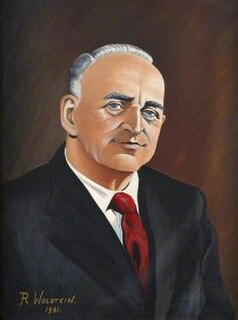
Abraham Moffat was a Scottish trade unionist and communist activist. He was elected repeatedly to high office in the trade unions and represented the union on government coal boards. He held major union offices: President of the National Union of Scottish Mine Workers; member of the Executive Committee of the Miners' Federation of Great Britain; Vice-Chairman Scottish Regional Coal Board; and member National Coal Board. He served as president of the union from 1942 to his retirement in 1961, when he was succeeded by his younger brother Alex Moffat, also an activist.
Alexander B. Moffat was a Scottish trade unionist and communist activist who was President of the Scottish Trades Union Congress and the Scottish Mineworkers Union.
William Pearson was a Scottish trade unionist and communist activist.
Herbert William Wynn was an English trade unionist and politician.
David Proudfoot was a Scottish trade unionist.
Alfred Davies was a Welsh trade unionist.
Edward Jones was a Welsh trade union leader.
References
- 1 2 3 4 5 Stevenson, Graham. "Llewellyn David". Compendium of Communist Biography. Retrieved 15 March 2019.
- 1 2 Bonsall, P. M. (1990). The Somerset and Lothian Miners 1919 - c.1947: Changing Attitudes to Pit Work in the Twentieth Century (PDF). Warwick: University of Warwick. pp. 209, 290. Retrieved 15 March 2019.